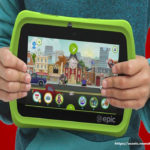Special Education Teacher – 5 Essential Qualities Of A Good SEN Teacher
The fundamental rule of imparting special education to children with special learning needs is to accept the kid ‘at his / her individual’ level and to design a learning program best suited to the strengths of the person.
To fulfill this goal, folks and care-givers of kids with special needs and heads of special schools must employ good SEN teachers who will be instrumental in experiencing this all-round progression of the learners.
Learning about the 5 essential qualities of the good special educator brings you much closer to your main goal of hiring the top candidate: read on to determine what they are!
1. A good special needs teacher must possess industry certifications as a way to plan, implement and make improvements to group teaching and 1:1 teaching programs, according to the needs of a school or individual curriculum, because the case may be. Thus, a licensed or experienced special education needs (SEN) teacher could have the data and qualifications necessary to base the framework of your Individualized Education Plan (IEP) around the current degree of learning of your child and hang correct objectives for the learner in their care, which is what’s forced to facilitate optimum training programs.
2. … READ MORE ...











